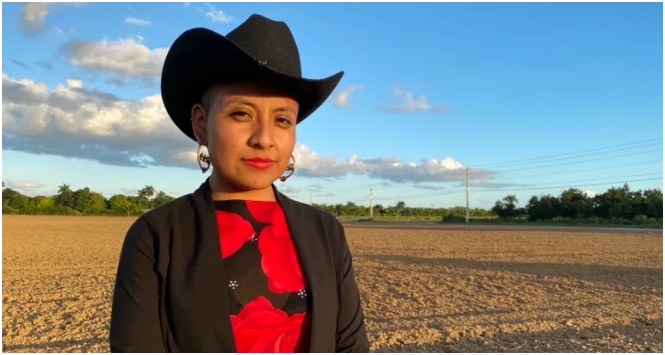An immigration judge in El Paso has terminated deportation proceedings against Catalina “Xóchitl” Santiago, a Deferred Action for Childhood Arrivals (DACA) recipient and activist, but the 30-year-old community organizer remains in Immigration and Customs Enforcement (ICE) detention, raising questions about enforcement discretion and due process for DACA beneficiaries.
Court Ruling
On Monday, Immigration Judge Michael Pleters ruled that Santiago’s DACA protections remain valid until their expiration in April 2026 and that she cannot be deported or transferred pending federal judicial review.
The ruling effectively terminated the Department of Homeland Security’s (DHS) removal proceedings, underscoring the statutory and constitutional limits on DHS’s authority in cases involving active DACA status.
Despite the termination order, Santiago has not been released from ICE custody, prompting calls from immigrant rights organizations for DHS to comply with the court’s decision.
Background of the Case

Santiago was detained at El Paso International Airport in August by Customs and Border Protection (CBP) officers as she attempted to board a domestic flight. DHS officials cited her prior criminal history—including charges of trespassing and drug possession—as grounds for initiating removal proceedings, emphasizing that DACA does not confer lawful immigration status.
According to DHS spokesperson Tricia McLaughlin, “Any DACA recipient with a criminal history may still be subject to removal.”
Supporters argue that Santiago presented valid DACA documentation at the time of her arrest and that ICE’s continued detention of her after Judge Pleters’ ruling constitutes overreach.
Legal and Policy Implications
The case highlights ongoing tensions between immigration courts and DHS enforcement priorities. While DACA provides temporary protection from removal and work authorization, it does not grant permanent residency or legal status. This distinction has left recipients vulnerable to enforcement actions, especially under heightened immigration crackdowns.
Legal scholars note that Santiago’s detention despite a terminated case raises potential due process concerns under the Fifth Amendment, particularly regarding the limits of executive enforcement authority when judicial rulings favor respondents.
The case also comes amid broader litigation over the future of DACA itself, with challenges to its legality pending before federal courts.
Community and Advocacy Response
Santiago’s detention has mobilized immigrant advocacy groups, including Movimiento Cosecha, which describe her as an integral community organizer.
Supporters have launched a GoFundMe campaign that has raised more than $82,000 toward her legal defense and post-release support, and petitions demanding her release have garnered thousands of signatures.
Next Steps
Santiago’s legal team is expected to pursue habeas relief or other federal remedies to secure her release, arguing that ICE detention contradicts the judge’s order. Meanwhile, immigrant rights organizations have planned demonstrations outside the El Paso ICE facility.
The case underscores both the precarious legal position of DACA recipients and the potential for conflict between judicial orders and executive branch enforcement practices.

